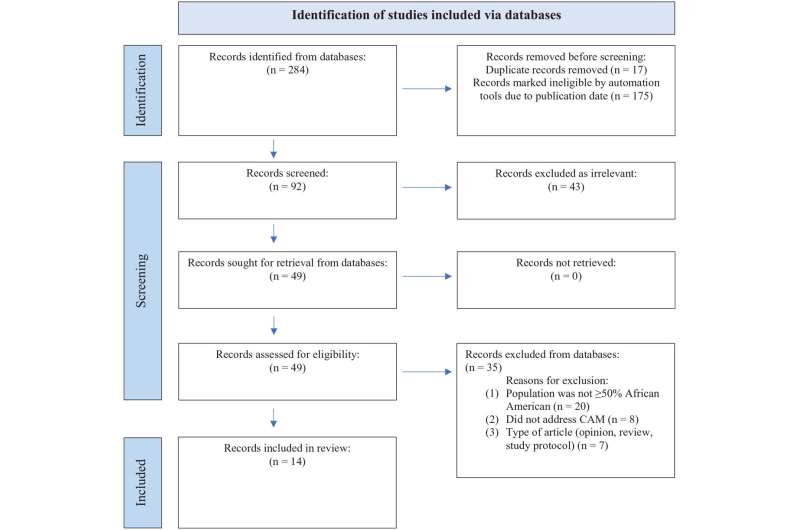Study reviews gap between African American cancer patients and mind-body interventions

For years, cancer survivor studies have touted the positives of mind-body interventions such as mediation, yoga, mindfulness, massage therapy, acupuncture, tai chi and qi gong to improve cancer survivors’ mental health, sleep quality, physical fitness, pain management and lifespan. Together such practices are known as complementary and alternative medicine (CAM) interventions.
But a new study from the University of Houston College of Nursing has found that while African American cancer survivors (AACS) have interest in such mind-body modalities, these practices often are inaccessible to them because of cost, geographical location, low socioeconomic status and lack of knowledge or awareness.
In a survey of primarily African American cancer survivors, only 22% reported awareness of CAM practices, indicating AACS may not be aware of or have access to participate in other forms of mind-body practice.
It is the first review to explore the use of mind-body interventions specifically for African American cancer survivor populations using both clinical trials and qualitative studies.
“These findings draw attention to the lack of mind-body interventions that have been offered for AACS, despite qualitative studies and surveys that discuss AACS interest and use of mind-body medicine and other complementary and alternative therapies to address physical and psychological concerns,” reports Pinky Shani, assistant professor of nursing, in the journal Integrative Cancer Therapies.
In her study, Shani reviewed 284 articles, published from 2016 through 2021 and clinical trials which included CAM intervention.
“Results indicate that African American cancer survivors have expressed receptiveness to interventions incorporating mindfulness, meditation, yoga, tai chi, and other mind-body or complimentary/alternative medicine interventions. Still, few studies have offered such interventions exclusively to African American cancer survivors,” said Shani.
Additionally, the study revealed that African Americans prefer to use CAM practices that are spiritual or meditative, and previous interventions thus far have not included spirituality or meditation as a primary component.
“As a nurse, Dr. Shani’s work embraces the significance and importance of body, mind and spirit care provided by nurses to all people,” commented Kathryn Tart, founding dean for the College of Nursing.
“Future studies seeking to offer a mind-body intervention for AACS may consider including measures that address spirituality from the beginning,” said Shani.
Source: Read Full Article
